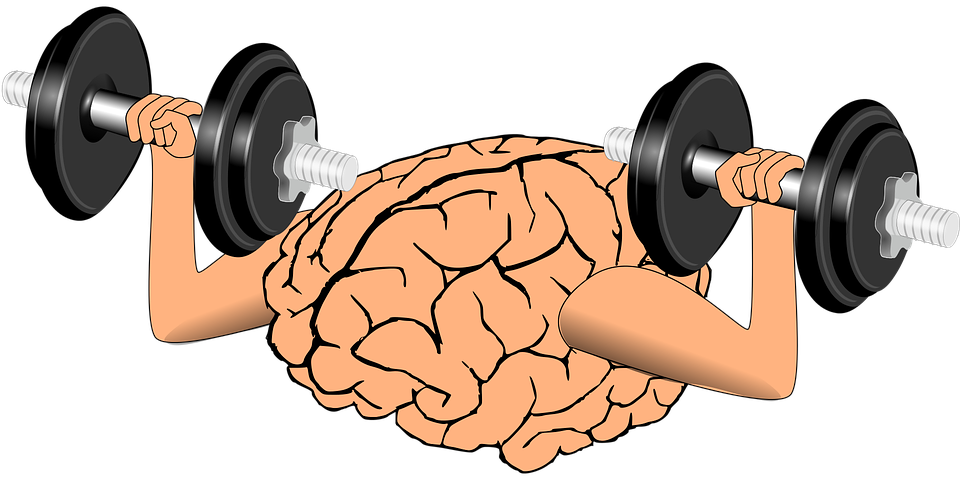How to Make Your Brain More Productive
For you, it’s another day about being productive. Whatever has to be created, edited or published, it’s all part of your business plan.
If you’ve been at it for a while, you know there’s good days and bad days. No one knows there are times when the words don’t flow and have to be extracted with a pick ax from your brain because there’s a deadline. No one would ever guess how good you are at procrastination. And, certainly, no one would ever suspect how frustrated and warped your brain gets trying to come up with fresh and valued content.
But, here you are as the day begins, setting out to be super productive. You’ve got your calendar schedule in place, social media and email are closed, water and other sustenance are nearby, and you’re ready for the marathon.
Here’s your productive wake-up call.
All your dedication to being productive will be neither effective nor efficient use of your time. While your heart is committed to being absolutely productive, your brain is not.
In the realm of business, productivity is a basic 8 hours of input. — 10 to 12 hours or more if you really want to succeed. And, it’s the hours that you build your life around in order to acquire and accomplish what you desire.
Time-wise you’ve been going about productivity all wrong. The idea has been to treat productivity as an endurance race rather than a series of sprint races.
Your New Year’s resolution is to get up early every morning and hit the gym. You accept the muscle aches and pains because “there’s no gain without pain.” And, you’re miserable until you learn about “active rest.”
Active rest is the alternating of intense exercise with light exercise activities for better recovery and strength building of muscles. It is also applied to rest days between workouts.
The key to effective and efficient productivity is the rest factor. Click To Tweet
In 1939, Nathan Kleitman, a physiologist and sleep researcher, identified 5 stages of sleep and alertness that altered between an active-rest cycle in the brain.
Most prominent during sleep is a consistent 90-minute cycle of REM (rapid eye movement). It’s during REM the brain becomes most active in processing information and dreaming while the rest of the body remains in sleep mode. However, during alertness, there’s also a 90-minute active-rest cycle known as Ultradian Rhythm.
To be in peak productivity is to take advantage of your Ultradian Rhythm — working in 90- minute intervals and taking 20-minute breaks in between. This is comparable to sports training with shorter bursts of energy output followed by a rest period for effective and efficient energy.
According to productivity expert Tony Schwartz, President of the Energy Project, our brain is wired physically and emotionally into 24/7 digitally environment. When we push beyond 90 minutes of productivity, energy needs to be replenished. We automatically seek energy sources from sugar, caffeine, carbohydrates and our stress hormones (adrenaline, noradrenaline, and cortisol).
Schwartz found himself being far more productive in writing his latest book. “By limiting each writing cycle to 90 minutes and building in periods of renewal, I was able to focus far more intensely and get more done in far less time.” His renewal periods were breakfast, a run and then lunch after each of his 90-minute work cycles.
For some 90 minutes is too long to remain focused. Sami Paju, a Finnish blogger, suggests starting with a 50-minutes and a 10 to 30-minute break. Others find 20-25 minutes of concerted effort works with 10-minute breaks. What’s important is to find your most alert times and start from there. Set a timer for your allotted work time and notice if you still have the energy to move on or is it starting to flag.
If you start to notice a restlessness, your mind wandering or thinking you need some brain energy, then it’s time to stop and take a scheduled break. What you do during your break time is just as important as what you have been working on.
“… a complete disengagement from that task at hand is at the heart if being able to rest and properly replenish your energy levels” is necessary according to Paju.
It’s about getting out of your head into a different environment. It may be getting outside for a few minutes for a walk or moving to a different area for some stretching or yoga. Listening to music, doing another light, non-demanding task, a 20-mintue power nap, or engaging someone in conversation (even if it means talking to the dog or cat). Basically, it’s whatever works to get you to rest so your brain neurons have time to reboot.
Are you as effectively and efficiently productive as you think you are? Or, could you use a boost from your brain’s Ultradian Rhythm?
Resources:
http://www.huffingtonpost.com/
http://lateralaction.com/
Image: CC0 Pixabay 1285128
